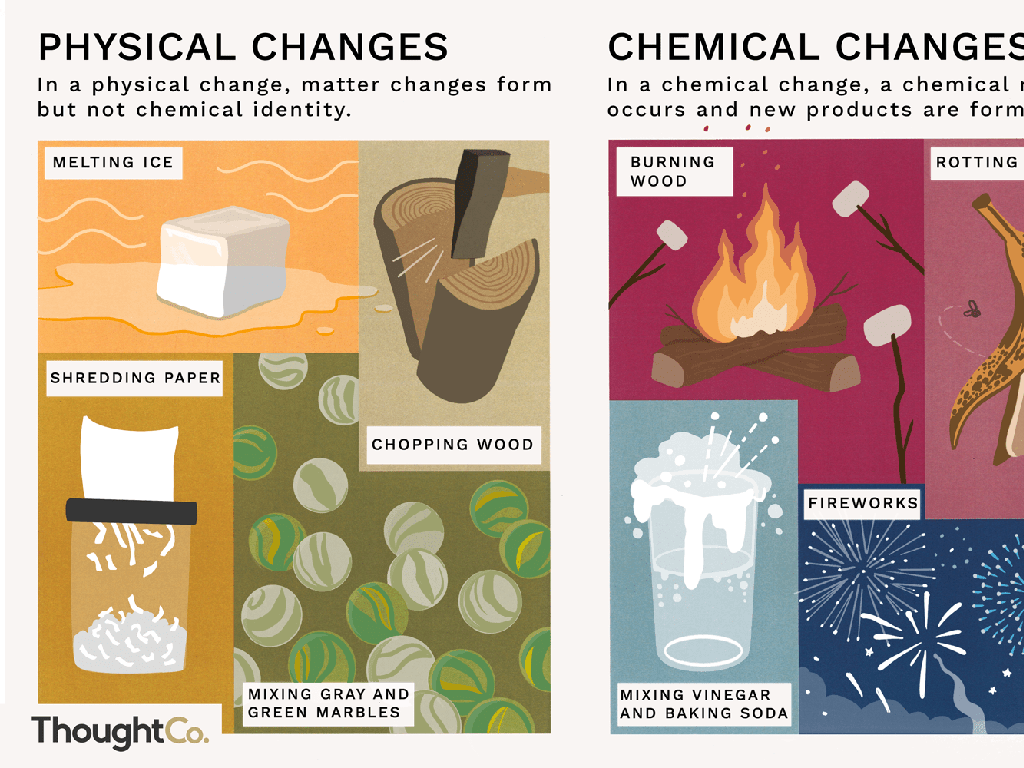Southern Colonies: Economy And Slavery
Subject: Social studies
Grade: Seventh grade
Topic: Colonial America
Please LOG IN to download the presentation. Access is available to registered users only.
View More Content
Southern Colonies: Economy and Slavery
– Explore Colonial America
– Learn about Southern Colonies
– Focus on Maryland, Virginia, the Carolinas, and Georgia
– Examine the economy’s foundation
– Agriculture was the main economic activity, with crops like tobacco and cotton
– Understand the role of slavery
– Slavery was integral to the agricultural economy, with enslaved Africans working on plantations
|
This slide introduces students to the Southern Colonies within the context of Colonial America, emphasizing the economic and social structures that defined the era. Students will learn about the geography and climate of the Southern Colonies, which made them suitable for agriculture. The lesson will delve into the plantation system and the cultivation of cash crops, which were labor-intensive and led to the reliance on slavery. It’s crucial to discuss the impact of slavery on society and the economy, as well as its ethical implications. Encourage students to think critically about the historical context and the long-term effects of these systems.
The Southern Colonies: Geography and Economy
– Identify the Southern Colonies
– Maryland, Virginia, North Carolina, South Carolina, Georgia
– Geographic and climate overview
– Warm climate, long growing seasons, fertile soil
– Unique crops and resources
– Tobacco, rice, indigo, and forest products
– Impact on economy and slavery
– These factors led to the rise of plantations and the need for labor, resulting in slavery
|
This slide aims to provide students with an understanding of the Southern Colonies in terms of their geography, climate, and unique agricultural products, which shaped their economy and societal structure. Emphasize the warm climate and fertile soil that allowed for long growing seasons, making agriculture the cornerstone of the Southern economy. Highlight the main crops like tobacco, rice, and indigo, which were in high demand in Europe, leading to the growth of plantations. Discuss how the labor-intensive nature of these crops led to the reliance on enslaved Africans, fundamentally linking the economy to the institution of slavery. Encourage students to consider how geography and natural resources can influence economic development and social systems.
Agriculture in the Southern Colonies
– Agriculture as economic backbone
– Farms and plantations were the main economic drivers in the South.
– Major crops: Tobacco, rice, indigo, cotton
– These cash crops were crucial for trade and commerce.
– Plantation system’s role
– Large estates relied on enslaved labor for cultivation.
– Economic impact of plantations
– Plantations boosted the economy but also increased reliance on slavery.
|
This slide aims to educate students on the significance of agriculture in the Southern colonies’ economy, highlighting the major crops that were cultivated and how they contributed to the region’s wealth. The plantation system, which was heavily dependent on slave labor, was a key factor in the economic structure and growth of the Southern colonies. Discuss the economic benefits that the plantation system brought to the South, but also address the ethical implications and the human cost of this system. Encourage students to reflect on the long-term effects of the plantation economy on the social and economic development of the United States.
Introduction to Slavery in the Southern Colonies
– Definition of slavery
– Slavery is forced labor without pay or freedom.
– The Transatlantic Slave Trade
– A trade route that forcibly brought Africans to the Americas.
– Slavery’s impact on the South
– Slavery was integral to the colonial agrarian economy.
– Economic reliance on slavery
– Southern wealth was tied to slave labor on plantations.
|
This slide introduces the concept of slavery and its significance in the Southern Colonies. Begin with a clear definition of slavery, emphasizing the lack of freedom and forced labor aspects. Explain the Transatlantic Slave Trade’s role in bringing African slaves to the Americas, including the Southern Colonies. Discuss how slavery became a cornerstone of the Southern economy, particularly in agriculture, and how the wealth of the South was built on the exploitation of slave labor. Highlight the moral and ethical implications of slavery, setting the stage for understanding its impact on society and its legacy. Encourage students to reflect on the human cost of slavery and its long-term effects on American history.
Life as a Slave in the Southern Colonies
– Daily life on plantations
– Routine tasks from dawn to dusk, harsh labor in fields or houses
– Slave living conditions
– Basic housing, minimal clothing, and food; families often separated
– Work expectations for slaves
– Long hours, physical labor; skilled slaves had carpentry, blacksmithing roles
– Resistance and resilience
– Secret meetings, work slowdowns, escape attempts as forms of resistance
|
This slide aims to give students a glimpse into the harsh realities of slavery in the Southern Colonies. Emphasize the grueling daily routines slaves endured, the poor living conditions they faced, and the high expectations placed upon them for productivity. Highlight the strength and courage slaves showed through various forms of resistance and resilience, despite the oppressive system. Encourage students to reflect on the human aspect of slavery, considering the impact on individuals and families. This discussion can lead to a deeper understanding of the social and economic fabric of Colonial America and the legacy of slavery.
The Economics of Slavery in the Southern Colonies
– Slavery’s role in the economy
– Slavery provided a cheap, stable labor force for large-scale agriculture.
– Crops and slave labor link
– Cash crops like tobacco and cotton relied heavily on slave labor for cultivation.
– Plantation owners’ gains
– Plantation owners profited greatly from the low cost of slave-provided labor.
– Economic impact on the South
– The reliance on slavery had a profound effect on the Southern economy’s growth.
|
This slide aims to explain the integral role that slavery played in the economic development of the Southern Colonies. Emphasize how the labor-intensive cultivation of cash crops like tobacco and cotton was made possible through the exploitation of enslaved people. Discuss the economic benefits plantation owners enjoyed due to the reduced labor costs, which in turn increased their wealth and influence. Highlight the connection between the prosperity of the Southern economy and the inhumane institution of slavery, setting the stage for the deep social and economic divisions that led up to the Civil War. Encourage students to reflect on the moral implications of an economy built on forced labor.
The Impact of Slavery on Southern Colonies
– Social & economic disparities
– Slavery created a divide between wealthy landowners and poor settlers.
– Moral & ethical implications
– Slavery raised questions about human rights and freedom.
– Lasting effects on society
– The legacy of slavery affects social and racial dynamics today.
|
This slide aims to discuss the profound impact of slavery on the Southern Colonies, highlighting the social and economic disparities it created. It’s crucial to address the moral and ethical implications of slavery, encouraging students to think critically about the issues of human rights and freedom. Discuss how these disparities and ethical considerations have led to lasting effects on American society, which are still evident in current social and racial dynamics. Encourage students to reflect on the historical context and its relevance to modern discussions on equality and justice.
Role-Play Debate: Plantation Life and Abolitionism
– Divide into plantation owners and abolitionists
– Present arguments from each perspective
– Discuss economic impacts of slavery
– How did slavery bolster the economy of Southern Colonies?
– Explore ethical considerations
– What are the moral arguments against slavery?
|
This class activity is designed to engage students in understanding the complex historical context of the Southern Colonies’ economy and the role of slavery. By role-playing as plantation owners and abolitionists, students will explore both the economic benefits that slavery provided to the colonies and the ethical arguments against it. Teachers should guide the plantation owner group to discuss the economic reliance on slave labor for crops like tobacco and cotton. The abolitionist group should focus on the moral implications and the human rights perspective. After the debate, facilitate a discussion that allows students to reflect on the historical significance of these viewpoints and their consequences. Provide a safe and respectful environment for open dialogue, ensuring that students understand the sensitivity of the topic.
Reflecting on Southern Colonies: Economy and Slavery
– Recap: Economy and Slavery
The Southern Colonies thrived on agriculture with slavery being integral.
– Reflect on today’s lessons
Consider how the information learned today changes or reinforces your understanding.
– History’s impact on today
Historical events and practices shape societal structures and views in the present.
– Discuss our modern perspective
|
As we conclude, let’s recap the role of agriculture and slavery in the Southern Colonies’ economy. Reflect on how these historical facts influence our understanding of the past and consider the importance of learning history to comprehend current social dynamics. Encourage students to think critically about how the legacy of the Southern Colonies affects our society today and to discuss how this knowledge can inform their perspective on modern issues related to economy and social justice.






